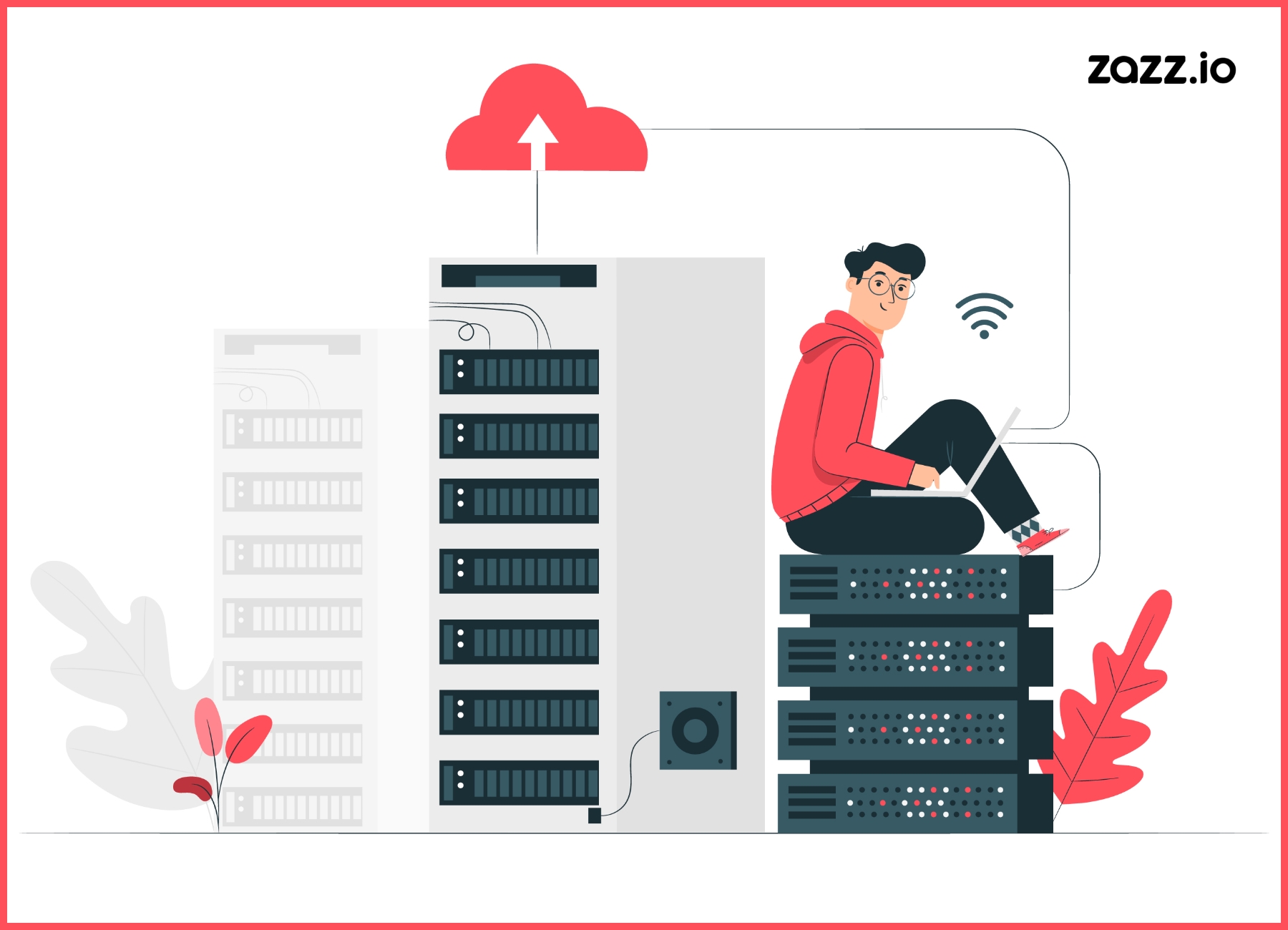Not everyone understands the concept of Cloud Storage, in fact, it is not well explained. Most of the pages we find on the subject make definitions too formal or imply their knowledge. In this article we will try to explain it in a simple way, you don’t have to be a computer expert to understand it or a technology expert.

The Basics
Let’s start with the basics: Cloud Storage consists of saving files in a place on the Internet. Those places on the Internet are applications or services that store or save those files. The files go from being on our devices to being stored in that service or application.
If for example, you upload a photo to Facebook, you are already storing something in the Cloud. That file will be transmitted from your computer or mobile to Facebook servers, then the photo will be saved by them so you can share it and your contacts will see it.
It is easy to understand, the photo must be there, somewhere on Facebook, so when you turn off your computer, others can continue to see the photo. In short, the photo is shown from the storage of that company called Facebook. The photo resides somewhere where it is being saved by them. Of course, Facebook is not a Cloud Storage service, but it helps us understand what it is.
Strange Terms?
Some technophobe will already be saying that we are using strange terms such as Server, an omnipresent word in the Internet world. I explain, the Cloud or Cloud is not as ephemeral as it seems, it is something real and tangible. In Internet computing we are always talking about servers, many times in excess assuming that anyone understands.
If mentioning Internet servers has been annoying to the reader, let’s go back to the previous example. To save the photo, once we have uploaded it, those of Facebook does not do magic nor do they have any cloud of water vapor or anything similar, they have a hard disk, a place where they copy the photo file.
Of course, we talk about a very fat hard drive, with much more capacity than the hard drive of your computer and the memory of your phone. When we have talked about the server we mean the computer that is connected to that big hard drive.
Also Read: The Essential Cloud Computing in the Healthcare Domain
Let’s Clarify
Before continuing, we need to clarify, one thing is computing and another is storage. Your mobile card is for storage, save documents, photos, and files in general, the rest of the phone is for computing.
Internet servers are responsible for computing, for example, Facebook shows the Facebook website, the photo you uploaded is stored on that super-disk connected to that server. The web server knows very well where the photo file is and displays it on the screen.
Discovering that it is really the Cloud.
The First:
When you upload a file to an Internet site, we say that you have stored it in the Cloud. The words Cloud or Cloud are more marketing terms than anything else, they serve to describe those Internet services that do more than display web pages, for example, save files or an accounting program. They are programs or services that are not on your computer, are on the Internet, so it is said that they are in the Cloud.
Let’s continue with the first conclusion that we can draw from our previous reasoning and that the reader will have already intuited. The first conclusion is that those disks on those servers must be huge. The answer is yes, they are and also have no limit.
Unlimited Storage Capacity?
Cloud Storage provides unlimited capacity.
Anyone who has used an electronic device in their life will have encountered a lack of storage space at some time, for example with their digital camera, there comes a time when there are no more photos. It also often happens with the mobile often.
So, if the Cloud is really physical devices, why do we say its capacity is unlimited?
We can say it because of the services in the Cloud incorporate capacity tailored to demand. If you run out of space on your hard drive, the solution is to buy another larger hard drive. The same happens with the providers of the Cloud, what happens is that they do not buy discs measured in Gigabytes but in TeraBytes or PetaBytes, a Terabyte is 1024 Gigabytes. When the storage is filling, they incorporate more storage, they buy it in a big way and get very good prices.
A cloud storage provider such as Dataprius, Dropbox or Drive has no limitations on the space required by its customers.
In short: We have to think that these hard drives are extraordinarily large. The provider can increase the disks according to the needs and without interrupting the service. The disks are in a Data Center or Datacenter. Datacenters are the buildings or facilities where the Cloud servers are.
The storage space can also have other quality features, not all hard drives are worth the same nor is the information as protected in some as in others.
Two Exceptional Advantages of Cloud Storage.
Undoubtedly the two indisputable advantages are ubiquity and unlimited capacity. As we have seen, if we save the files in the Cloud we are no longer limited to the capacity of our devices or computers.
This can be considered a superficial advantage for a particular user, it can become a crucial advantage for a company. While the private user deals with Gigabytes, the company is dealing with hundreds of Gigabytes or thousands.
Unlimited Capacity
Initially, the particular user perceives unlimited storage as a feature that can have as much value as the purchase of another hard drive or another card with more capacity, will depend greatly on the amount of space used.
Of course, it is very practical not to fill the memory of the mobile or the hard drive of the computer, the point is that you have to go a little further to really appreciate what it means to save files in the Cloud, you have to assess other virtues.
As we have said, for a company the thing changes a lot, there is a different vision to that of the particular user. To start, the company needs much more storage capacity, and also not any type of storage, it must be one that can be shared with its employees and customers, and also provides security, privacy, and stability guarantees. These factors may not be as important for a particular user.
If the private user considers ubiquity as a dispensable factor, a strange case in our times, then Cloud storage does not provide more advantages than the purchase of more storage capacity. If you really believe that you need or want to have your files anywhere and at any time, then you will appreciate Cloud storage as much as a company, we are already seriously assessing ubiquity.
Ubiquity
Therefore, ubiquity is nothing more than the ability to access files from anywhere and at any time, only an Internet connection is needed.
As users have Smartphones and Wifi networks are present anywhere, cloud storage acts as a hard drive accessible from all our devices and at any time. The documents and files are with us and also the volume and quantity do not matter.
The sum of the two factors, ubiquity plus unlimited capacity, are undoubtedly the keys to the great success and expansion of this file storage model globally. Every technological revolution is based on an earlier revolution that serves as the basis.
In this case, the grassroots revolution has been Mobility, the incredible expansion of mobile telephony that allows everyone to be permanently connected to the Internet. In addition, each person has several devices and wants to access their files from each of them, the solution to this need is necessarily cloud storage.
Pay For What We Use.
To the basic advantages described above must be added the possibility offered by Cloud Computing to pay just for what is needed at all times. Normally a capacity and a number of users are hired that can be modified over time to meet those needs. This flexibility places Cloud storage at another level compared to the old solutions consisting of the installation of physical devices or local servers.
Physical storage devices such as hard drives, flash drives or memory cards are being relegated to another plane. When someone is seen using a flash drive it has the same effect as if they give us a fax number. The physical devices will continue to be sold because they have their utility and they are also very economical, but they are losing weight due to the wide use and proliferation of cloud storage.
The company is where the change is most dramatic, the company wants to access documents from anywhere, have no space limitations, free from the maintenance of physical devices and save the files in external storage that provides a higher level of security.
The Transition to Knowledge and Use of Cloud Storage.
We are still in full transition to the cloud storage model. We are in full stage of discovery. Any technological revolution goes through three stages:
- The public begins to use technology although it is not refined.
- The technology is improved, optimized, errors of its primitive use are cleared.
- Technology is widespread, has undergone an important evolution.
The success of consumer applications such as Dropbox and Drive are symptoms that confirm that we are in the technology discovery phase. As has happened in other technological revolutions, the discovery stage is tortuous.
Transition Technology?
The first thing we should observe in virtual hard drives such as Dropbox or Drive is that they are transition technologies. They provide a half solution between Cloud storage and storage on our physical devices. They are synchronizers that keep files on local devices and copy them to the Cloud. They are technologies other than Dataprius that are committed to pure storage in the Cloud without the need for local copies.
This happens with emails. At the beginning of the use of email, everyone printed the emails they received. This seems strange to us now, the email was in the discovery phase. Today the email is in the Use phase and it is even frowned upon and it is ecologically inappropriate to print an email, at the foot almost all companies recommend not printing it, it is not necessary.
The same as with emails is happening with cloud storage. People are using applications that keep copies of the files on their devices or computers, it seems they don’t trust the Cloud yet. This behavior is similar to the one before, they did not want to leave the email in the inbox if it disappeared.
Do wait for our next article, in which we will cover the benefits cloud storage have for the companies and businesses. Moreover, we will discuss the concept of virtual disks and the prospects of cloud storage in the future. Stay tuned!
Also Read: Cloud Computing: A Potential Fit For Future Evolution In Businesses
Recent Articles
Zazz.io Recognized as a Top Mobile...
When it comes to mobile app development and digital transformation...
Impact Of Google Bard on Mobile...
Artificial Intelligence has caused an irreplaceable disruption in almost every...
Cost of Building a Real Estate...
100 million+ homes listed in some of the most preferred...










